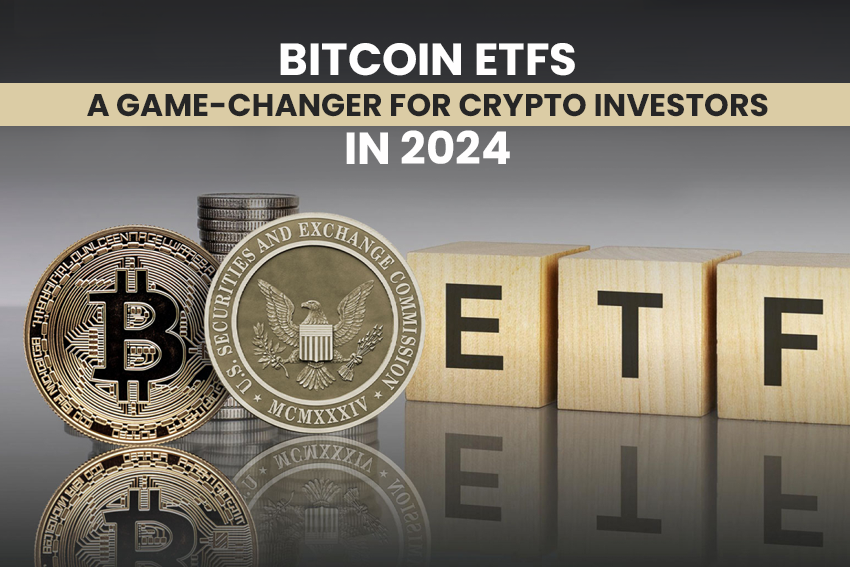
Introduction:
In a landmark decision that marks a new era for cryptocurrency investment, the U.S. Securities and Exchange Commission (SEC) has approved the first spot Bitcoin Exchange-Traded Funds (ETFs) for 11 issuers. This historic move, over a decade in the making, has the potential to revolutionize the cryptocurrency landscape, particularly influencing Bitcoin’s market trajectory in 2024.
Understanding the Significance of the Approval:
For years, the SEC had been hesitant to approve Bitcoin spot ETFs, citing concerns over market manipulation and investor protection. The recent approval signifies a major shift in the regulatory stance and acknowledges the maturing of the Bitcoin market. The approved ETFs from industry giants like BlackRock, Grayscale, ARK 21Shares, and Fidelity offer a more direct exposure to Bitcoin’s price compared to the previously approved futures-based ETFs. This direct exposure is likely to attract a wider range of investors, from cautious retail investors to large-scale institutional players
Impact on Investor Accessibility and Market Legitimacy:
One of the most significant implications of the SEC’s decision is the increased accessibility of Bitcoin investments. Spot ETFs allow investors to gain exposure to Bitcoin without the complexities of owning it directly, such as managing cryptocurrency wallets and facing security risks associated with crypto exchanges. This ease of access, coupled with the stringent regulatory framework of the stock exchanges, could bring in a wave of new investors who were previously deterred by the perceived risks and technical barriers of the crypto market. Moreover, the listing of Bitcoin spot ETFs on renowned exchanges like the CBOE, NYSE, and Nasdaq enhances the legitimacy of Bitcoin as a mainstream financial asset
Analyzing the Potential Market Dynamics in 2024:
The approval of Bitcoin spot ETFs is expected to have a multi-dimensional impact on Bitcoin’s price in 2024. Historically, the introduction of new financial products has led to increased demand for the underlying asset, suggesting a potential rise in Bitcoin’s price. However, it’s important to consider the complex interplay of factors such as global economic trends, evolving regulatory landscapes, and technological advancements in the blockchain sector, all of which could significantly influence Bitcoin’s price trajectory.
Moreover, with Bitcoin becoming more integrated into the traditional financial markets, its correlation with broader market trends might increase. This could lead to Bitcoin being more affected by global economic events, potentially reducing its characteristic volatility and making it a more stable investment in the long run.
The Broader Implications for the Crypto Industry:
The SEC’s approval is more than just a nod to Bitcoin; it represents a broader acceptance of cryptocurrency as a legitimate asset class. This could encourage the development of more crypto-based financial products, further integrating cryptocurrencies into the global financial system. The entrance of institutional investors, who have been cautious due to the lack of regulated investment avenues, could provide a stabilizing effect on the crypto markets, potentially leading to more consistent growth and less speculative behavior.
Challenges and Risks Going Forward:
Despite the optimism, challenges remain. The cryptocurrency market is notoriously volatile and unpredictable, and while the introduction of spot ETFs is a significant step forward, it does not eliminate the inherent risks associated with crypto investments. Additionally, the regulatory environment is still evolving, and future regulatory actions could impact the market in unforeseen ways.
Conclusion:
The SEC’s approval of Bitcoin spot ETFs is a milestone in the journey of cryptocurrency towards mainstream acceptance. It opens up new opportunities for investors, contributes to market stability, and enhances the legitimacy of Bitcoin and the broader crypto market. As we move into 2024, the impact of this decision will likely be a key driver in the evolution of the cryptocurrency market, though it remains to be seen how this will play out in the complex and ever-changing landscape of digital assets.



Comments (No)